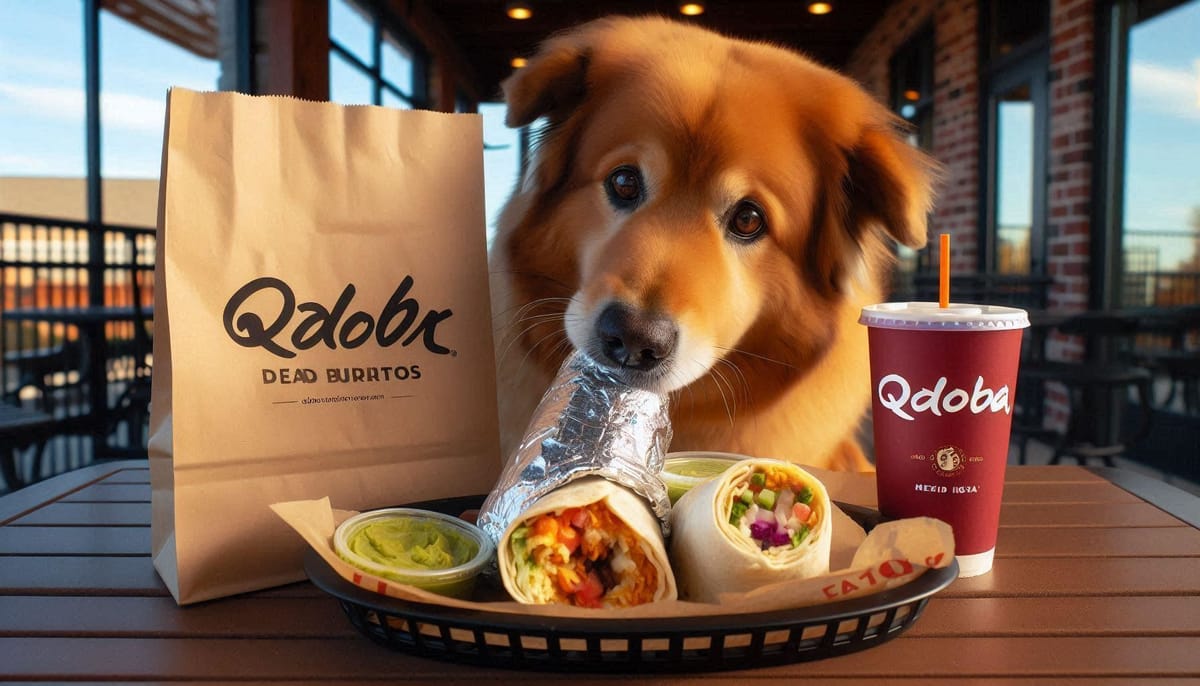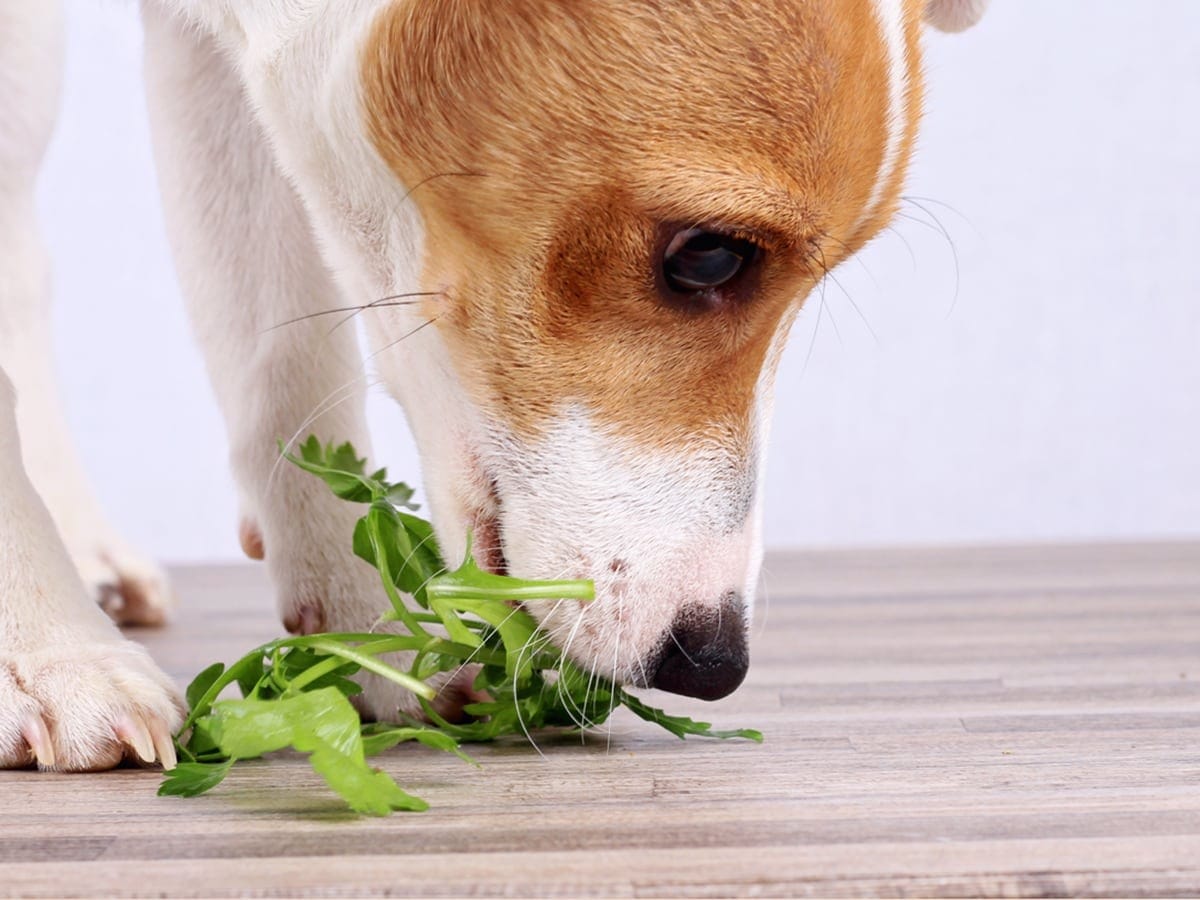Dogs have a curious nature and are always interested in trying out new foods. When it comes to certain human foods, caution is essential. One such food that often raises questions is Jello. Can dogs safely consume Jello? Let's find out.
Jello, also known as gelatin, is a popular dessert made from flavored and sweetened gelatin powder mixed with water. While it may be a refreshing and enjoyable treat for humans, the same cannot necessarily be said for our furry friends.
When considering if Jello is safe for dogs to eat, it's important to examine the ingredients. Jello typically contains ingredients such as artificial sweeteners, sugar, additives, and preservatives. These components may pose potential risks to dogs if consumed in significant amounts.
Artificial sweeteners like xylitol, commonly found in sugar-free Jello, can be toxic to dogs and lead to severe health issues. The high sugar content in regular Jello can contribute to obesity, dental problems, and gastrointestinal upset in dogs.
The additives and preservatives present in Jello can also be problematic for dogs, potentially causing allergic reactions or digestive disturbances.
If a dog consumes Jello, it's crucial to be aware of the signs of Jello poisoning. These may include vomiting, diarrhea, increased thirst, restlessness, lethargy, or even seizures. If you suspect your dog has ingested Jello and is experiencing these symptoms, seeking veterinary assistance is recommended.
Instead of giving Jello to your dog, there are safer alternatives available. Homemade gelatin treats can be prepared using dog-friendly ingredients, ensuring a healthier and more suitable option. Natural fruit gelatin made from fresh fruits can also be a tasty and nutritious treat for your canine companion.

Can Dogs Eat Jello?
When it comes to dogs eating Jello, there are a few important factors to consider:
- Ingredients: Jello is primarily made of gelatin, sugar, and flavorings. Gelatin is generally safe for dogs, but you should be cautious of other ingredients. Some Jello products may have artificial sweeteners like xylitol, which can be toxic to dogs. Always check the ingredients list before giving Jello to your furry friend.
- Sugar content: Jello has a lot of sugar, which can harm dogs if consumed in large amounts. Too much sugar can lead to weight gain, dental issues, and even diabetes. It's best to limit your dog's consumption of sugary foods, including Jello.
- Potential digestive issues: Dogs might experience digestive discomfort if they eat Jello, especially if they have underlying health problems or sensitivities. The artificial additives and flavorings in Jello can upset their stomach and cause diarrhea or vomiting.
- Alternative options: Instead of Jello, choose healthier treats for your dog. There are dog-friendly alternatives like flavored gelatin made for dogs or natural fruit purees.
It is generally safe for dogs to consumesmall amounts of plaingelatin, but it is advisable to consult a veterinarian before adding anynew food to your dog's diet.
They canoffer customized guidance tailored toyour dog'sindividual requirements and dietary limitations. Remember to prioritize your dog's health and well-being whendeciding what to feed them.
What is Jello?
Jello is a dessert made by combining gelatin, sugar, fruit flavors, and water. The gelatin usedin Jello is made from collagen found in animal bones and connective tissues. The productis soldas a powder and can be prepared by dissolving it in hot water, adding cold water, and refrigerating it.
Jello has a unique texture and wobbly consistency that comes from the thickening properties of gelatin. It is available in flavors like strawberry, cherry, lime, and orange.
It's important to note that Jello is not suitable for vegetarians or vegans because it comes from animal sources. It is not a significant source of nutrients and is mainly consumed for its fun texture and taste. It is low in calories and fat, making it a popular choice for weight-conscious individuals.
If you want a vegetarian or vegan alternative to Jello, you can try agar agar. It is a plant-based substitute with similar thickening properties that can be used to create jiggly desserts."
Is Jello Safe for Dogs to Eat?
Jello is unsafe for dogs. Is Jello safe for dogs to eat? It contains artificial sweeteners like xylitol, which are toxic to dogs and can cause low blood sugar and liver failure. The additives and flavorings in Jello can also cause digestive upset and allergic reactions in dogs. Jello is high in sugar, which can lead to weight gain, dental issues, and diabetes in dogs. The slippery texture of Jello can also pose a choking hazard, especially for small dogs.
It is best to avoid giving Jello or similar gelatin desserts to dogs and instead choose dog-friendly treats that meet their dietary needs. Always consult with a veterinarian for the best diet for your dog.
In 1994, there was a case where a dog consumed a large amount of Jello and suffered severe digestive issues. The dog was treated by a vet and made a full recovery. This incident serves as a warning about the dangers of feeding Jello to dogs.
What Are the Ingredients in Jello?
The ingredients in Jello can vary depending on the brand and flavor. Common ingredients include gelatin, sugar, artificial flavors, artificial sweeteners, and food colorings.
Gelatin, which is derived from collagen, is the main ingredient in Jello and gives it its signature jiggle. It is a healthy protein source for dogs and can improve their coat and promote healthier skin.
Sugar is another key ingredient in Jello, giving it a sweet taste. Excessive sugar consumption can be harmful to dogs, leading to weight gain, dental issues, and contributing to conditions such as canine diabetes and liver failure.
To enhance the taste and appearance of Jello, artificial flavors and food colorings are used. While generally safe for dogs in small amounts, some dogs may be sensitive or allergic to certain artificial additives. It is important to monitor your dog for any adverse reactions when introducing new foods.
It is crucial to check the ingredients label carefully, as some Jello products may contain artificial sweeteners like xylitol, which can be toxic to dogs. To ensure your dog's safety, it is recommended to avoid any Jello products with potentially harmful additives.
Potential Risks of Giving Jello to Dogs
While Jello may be a delightful treat for humans, it's crucial to consider its potential risks when it comes to our furry friends. In this section, we will uncover the dangers associated with giving Jello to dogs. From the implications of artificial sweeteners to the impact of sugar content and the potential harm caused by additives and preservatives in Jello, we'll dive into the various aspects that pet owners should be aware of. Let's ensure our canine companions stay safe and healthy when it comes to their diets.
Artificial Sweeteners and Dogs
When it comes to artificial sweeteners and dogs, be aware of the potential risks they pose. Artificial sweeteners are used in many food products, including some types of jello. These sweeteners are not safe for dogs.
Artificial Sweeteners Effects on Dogs
Xylitol - Can cause dangerous drop in blood sugar, leading to seizures, liver failure, and even death.
Aspartame - May cause gastrointestinal upset, leading to vomiting and diarrhea.
Saccharin - Can have digestive side effects and may cause an upset stomach.
Even small amounts of artificial sweeteners can be toxic to dogs, and some can be more dangerous than others. Xylitol, in particular, can be extremely harmful and should be avoided at all costs.
If your dog accidentally consumes jello or any other food containing artificial sweeteners, seek immediate veterinary attention. Symptoms of artificial sweetener poisoning in dogs may include lethargy, weakness, tremors, seizures, and difficulty walking.
To ensure the health and safety of your furry friend, avoid feeding them any foods that contain artificial sweeteners. Instead, choose dog-safe alternatives such as homemade gelatin treats made with plain unflavored gelatin and natural flavors like chicken broth or fresh fruit. These alternatives are healthier and still provide a tasty treat for your dog.
What Should You Do If Your Dog Eats Jello?
If your dog eats Jello, it is important to take steps to ensure their safety and well-being. Here are some guidelines to follow:
1. What Should You Do If Your Dog Eats Jello? First, remove the remaining Jello if your dog has only eaten a small amount. This will prevent them from ingesting more.
2. Assess your dog's condition carefully. Look for signs of discomfort or adverse reactions, such as vomiting, diarrhea, or excessive drooling.
3. In case your dog has consumed a significant amount of Jello or is displaying concerning symptoms, it is crucial to contact your veterinarian. They can provide guidance based on your dog's specific situation.
4. Provide fresh water to your dog. This will help dilute the Jello and prevent any potential gastrointestinal issues.
5. Keep a close eye on your dog. Monitor their behavior and well-being closely. If symptoms worsen or new ones appear, it is important to contact your veterinarian immediately.
6. Follow the veterinarian's recommendation for a temporary modified diet. This may include feeding your dog a bland diet or avoiding certain foods until they fully recover.
Remember, it is always best to seek professional advice from your veterinarian for the best care for your dog.
Safe Alternatives to Jello for Dogs
Looking to treat your furry friend? Dive into the world of safe alternatives to jello for dogs! Get ready to whip up some homemade gelatin treats that will make your pup's tail wag with delight. Or, explore the tantalizing taste of natural fruit gelatin made specifically for dogs. Say goodbye to any worries about whether dogs can eat jello, and say hello to these delectable alternatives that will have your canine companion begging for more!

Homemade Gelatin Treats for Dogs
Homemade gelatin treats are a great option for treating your dog. These treats provide numerous benefits that make them highly desirable.
Homemade gelatin treats primarily use collagen gelatin, a natural source of protein. This collagen protein improves your dog's overall health, enhances their coat, and strengthens their nails.
These treats are excellent for promoting gut health in dogs. Gelatin aids in digestion regulation and provides relief for upset stomachs.
Homemade gelatin treats are a game-changer for joint health. They help improve joint health by reducing stiffness and discomfort in dogs with joint diseases or age-related issues.
Homemade gelatin treats have the added benefit of being free from artificial ingredients. By making these treats yourself, you can avoid harmful artificial sweeteners, flavors, and colors that can negatively impact your dog's health.
Homemade gelatin treats are not only healthy but also incredibly easy to make. You only need a few simple ingredients like plain unflavored gelatin, hot water, and healthy additions such as chicken broth or fresh strawberries.
If you're looking for variety, homemade gelatin treats are the perfect choice. You can tailor the flavors to suit your dog's preferences. For a savory snack, use chicken broth, and for a naturally sweet flavor, try pureed fruits.
It is important to control the sugar content in your dog's treats for their overall health. With homemade treats, you have control over the amount of sugar or the option to choose sugar-free alternatives, which helps protect your dog from any potential health issues.
Homemade gelatin treats give you full control over the dosage. It is crucial to ensure that your dog receives safe and appropriate amounts of gelatin. It is important to note that unregulated use of supplements can result in health problems, such as liver damage.
Natural Fruit Gelatin for Dogs
Table: Natural Fruit Gelatin for Dogs
| Benefits | Details |
| Source of nutrients | Natural fruit gelatin for dogs contains essential vitamins and minerals from fruits, providing nutritional benefits. |
| Promotes hydration | Gelatin desserts help dogs stay hydrated, especially during hot weather or after physical exercise. |
| Improves digestion | The fiber content in fruits aids digestion, promoting a healthy digestive system in dogs. |
| Joint health | Fruits like pineapple and berries contain antioxidants and anti-inflammatory properties that support joint health in dogs. |
| Healthy skin and coat | Natural fruit gelatin contributes to healthier skin and a shinier coat for dogs. |
Some Facts About Can Dogs Eat Jello:
✅ Dogs can eat pure, homemade jello that does not contain sugar or artificial sweeteners.
✅ Giving dogs store-bought jello desserts is not recommended as they often contain artificial sweeteners like xylitol, which is highly toxic to dogs.
✅ Jello is high in sugar and can lead to obesity and other health issues in dogs.
✅ Homemade jello made without food colorings, sugar, or sweeteners is safer for dogs to eat.
✅ It is best to avoid feeding jello to dogs altogether and opt for alternative treats that are more beneficial for their health.
Frequently Asked Questions (FAQs)
- Can dogs eat Jello?
- No, dogs should not eat Jello because it is high in sugar and can lead to obesity and other health issues. Store-bought Jello desserts also often contain artificial sweeteners like xylitol, which is highly toxic to dogs.
- What are the negative effects of sugar on dogs?
- Regular consumption of sugar can lead to weight gain, metabolic changes, and even diabetes in dogs. It is important to avoid feeding dogs foods that contain high amounts of sugar.
- Is homemade Jello safe for dogs?
- Pure, homemade Jello that does not contain sugar or artificial sweeteners can be safe for dogs to eat. It is still recommended to avoid feeding Jello to dogs altogether and opt for healthier alternatives.
- What are some Jello alternatives for dogs?
- There are plenty of alternatives that dogs can enjoy instead of Jello, such as gelatin mixed with chicken broth or fresh fruits like strawberries, bananas, blueberries, mango, and oranges. These fruits should be properly prepared before feeding them to dogs.
- Can dogs eat fruit-flavored jelly desserts?
- Fruit-flavored jelly desserts, such as Jello cups, should not be fed to dogs. These desserts often contain high amounts of sugar and artificial additives that are not beneficial for a dog's health.
- Is gelatin beneficial for dogs?
- Gelatin can be beneficial for dogs as it is a healthy protein that can aid in digestion and joint health. It is important to ensure that the gelatin used is of high quality and does not contain any harmful additives.
Want to know more about Can Dogs Eat?







